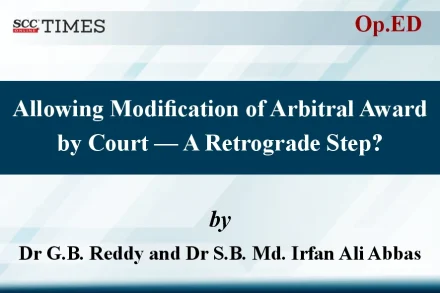
Allowing Modification of Arbitral Award by Court — A Retrograde Step?
by Dr G.B. Reddy* and Dr S.B. Md. Irfan Ali Abbas**

by Dr G.B. Reddy* and Dr S.B. Md. Irfan Ali Abbas**
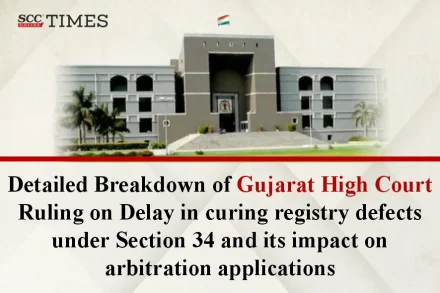
The Court noted that the registry did not follow the procedure prescribed in the GHC Rules for movement of the papers from the registry to the competent Court, thus there was no occasion for consideration by the Court concerned as to whether the respondents were entitled to condonation of delay in removal of office objections.
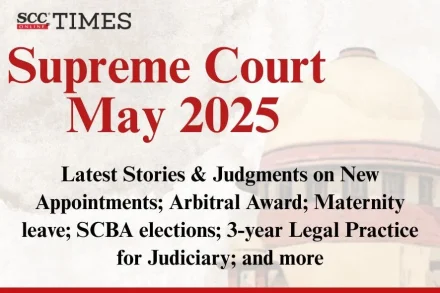
Stay informed with the latest Supreme Court judgments from May 2025, covering critical topics such as modifications to arbitral awards, maternity leave policies, SCBA elections, and the right to digital access. This comprehensive roundup also highlights the appointments and transfers by the Supreme Court. Explore the key rulings shaping the legal landscape.

“The provisions of CPC are only applicable to the extent of ‘enforcement’ of an award which are reflected in Order 21 of CPC. The legislature did not intend to permit a challenge an award during enforcement proceedings again on merits as it would be contrary to the objectives of the A&C Act which aims to ensure finality and limited judicial interference.”
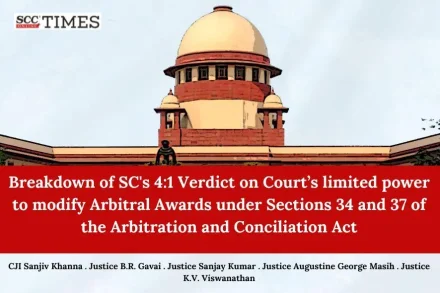
The present controversy arose because the Arbitration and Conciliation Act, 1996, does not expressly empower courts to modify or vary an arbitral award, and Section 34 of the 1996 Act only confers upon courts the power to set aside an award.
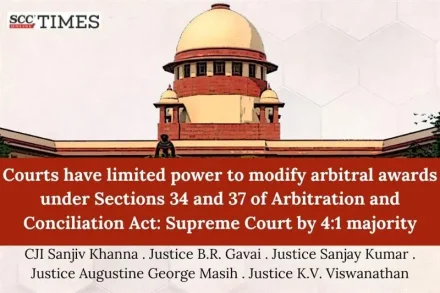
Section 34 of the Arbitration and Conciliation Act, 1996 provides the legal framework for challenging an arbitral award before a court, while Section 37 governs appeals against specific orders passed under the Act, including those made under Section 34.
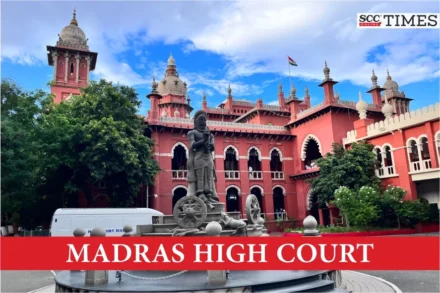
If the intention of the legislature had been to require the recording of oral evidence for adjudicating every application filed under Order 21, Rule 58 CPC, such a requirement would have been explicitly stipulated within the provision itself.
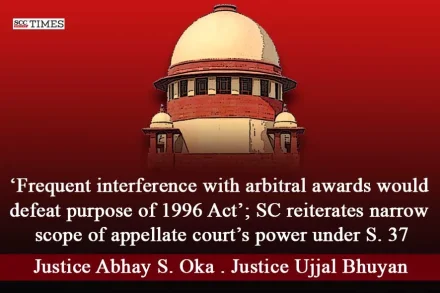
“Section 37 of the 1996 Act grants narrower scope to the appellate court to review the findings in an arbitral award if it has been upheld or substantially upheld under Section 34.”
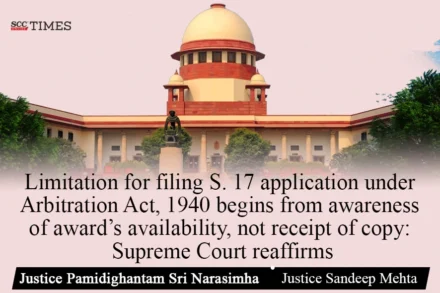
Supreme Court said that allowing a party, already aware of the award, to delay proceedings by insisting on procedural formalities would frustrate the expeditious resolution of disputes, undermining the very purpose of the Arbitration Act.
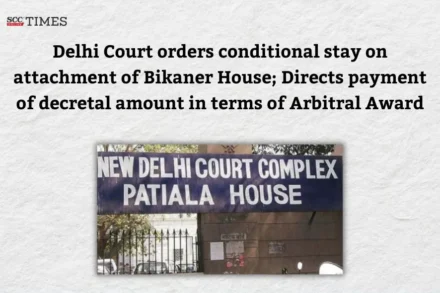
The Court had ordered the attachment of the Bikaner House to enforce payment since neither did the Nagar Palika of the State of Rajasthan comply with the court order to file an affidavit of assets nor did it pay the petitioner per the arbitral award.
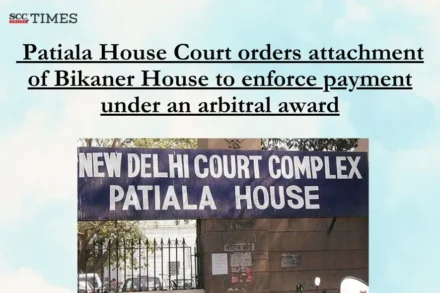
The Nagar Palika of the State of Rajasthan failed to comply with court order to file an affidavit of assets despite being given multiple opportunities and failed to pay the petitioner in accordance with the arbitral award.
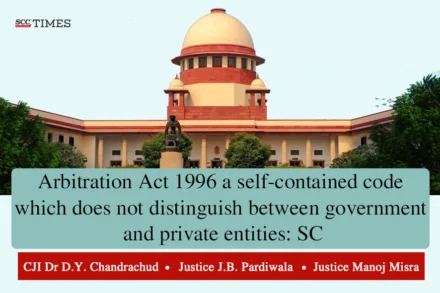
The Court said that governmental entities must be treated in a similar fashion to private parties insofar as proceedings under the Arbitration Act are concerned, except where otherwise indicated by law.
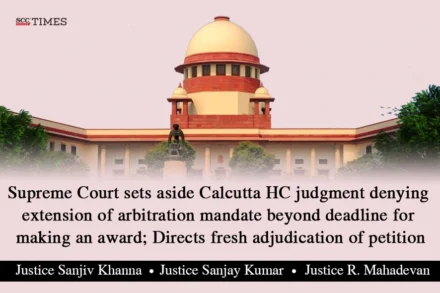
In the Judgment dated 12-09-2024, Supreme Court had held that an application for extension of time for passing an arbitral award under Section 29A (4) read with Section 29A (5) is maintainable even after the expiry of the twelve-month or the extended six-month period. The court, while adjudicating such extension applications will be guided by the principle of sufficient cause.
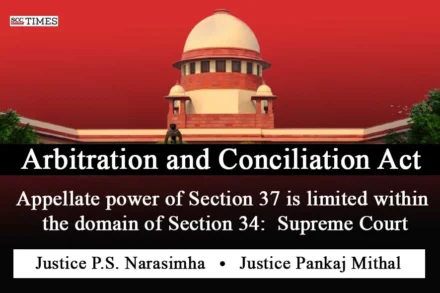
“Merely for the reason that the view of the Appellate Court is a better view than the one taken by the arbitral tribunal, is no ground to set aside the award”.
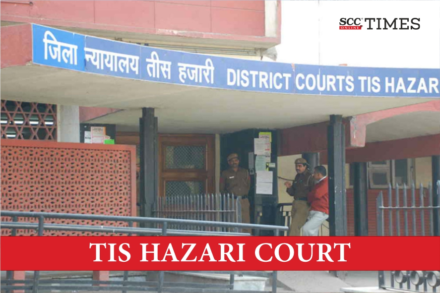
‘The autonomy conferred on the parties is not unbridled and appointment of the Arbitrator has to meet the prerequisite of his neutrality and impartiality which are the bedrock on which the foundation of arbitration rests.’
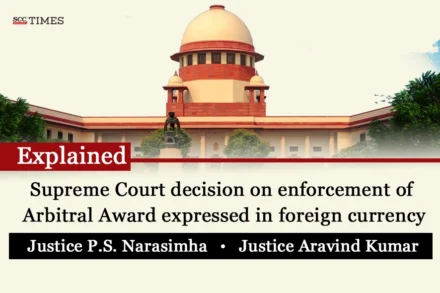
To resolve the questions arising and considering the uncertainties regarding time-lapse between the date of the award and its enforceability and the ever-fluctuating exchange rates, the Court formulated twin principles.
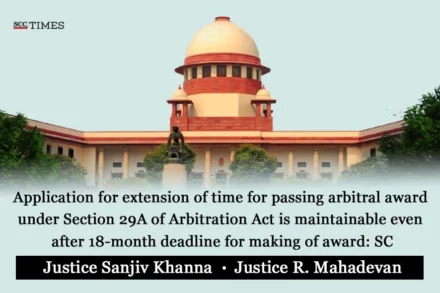
“Section 29A intends to ensure the timely completion of arbitral proceedings while allowing Courts the flexibility to grant extensions when warranted. Prescribing a limitation period, unless clearly stated in words or necessary, should not be accepted. Bar by limitation has penal and fatal consequences.”

The statutory authority under the MSMED Act would only have the jurisdiction to entertain a dispute when the supplier had been registered as a Micro or Small enterprise under the MSMED Act at that relevant point of time.
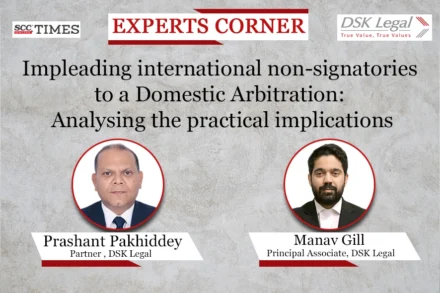
by Prashant Pakhiddey* and Manav Gill**
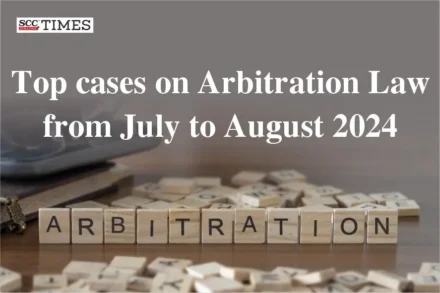
A quick recap of the latest rulings on Arbitration Law by the High Courts.